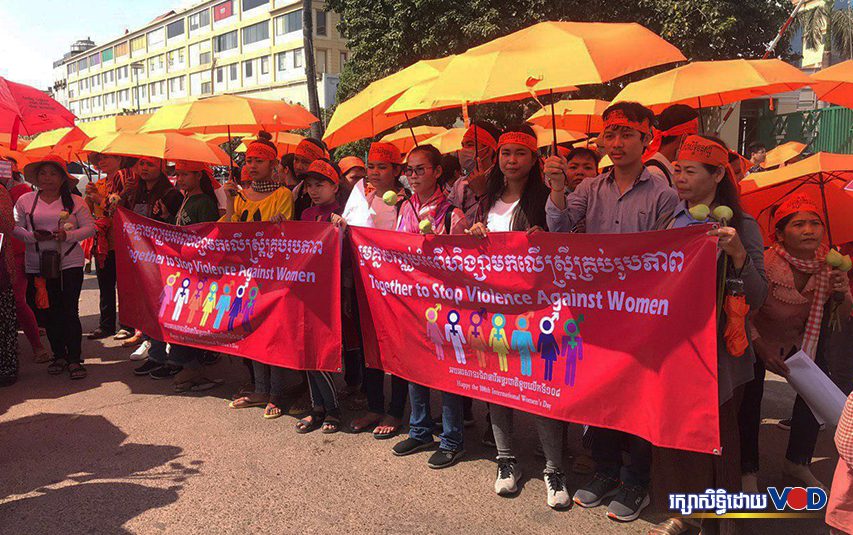Civil society groups and local communities have been restricted from exercising their right to free assembly in 71 cases over the first six months of the year, rights group Adhoc said on Wednesday.
In a statement, the NGO said local authorities were continuing to restrict the activities of civil society organizations and political party activists by taking photos, collecting names and deploying plainclothes officers to watch and listen when community groups gathered for meetings.
Representatives of local communities have also been summoned or questioned by phone after meeting with NGOs, it said.
Thirty of the recorded cases were against gatherings organized by Adhoc, the statement said.
The restrictions violated the right to freedom of assembly and went against an Interior Ministry order from November 27 directing local authorities to allow NGOs to operate freely, it said.
Chin Malin, spokesman for the government’s Cambodia Human Rights Committee, said he rejected the report and argued that authorities were only monitoring potential criminal groups who sought to seed unrest in the country.
“Not all people across the country are being monitored,” Malin said.
“Why a small group of people is being monitored is because there have been tips about them committing crimes and causing unrest in society due to incitement by an illegal organized political group,” he said, apparently referring to the dissolved main opposition Cambodia National Rescue Party (CNRP).
“That is why there is observation — in order to prevent unrest and crimes from happening,” he said.
On July 19, U.N. human rights experts Rhona Smith and David Kaye issued a joint statement raising concerns about the government abusing the law to target and intimidate NGO officials and restrict their freedom of expression, particularly by accusing them of incitement.
They noted reports that more than 140 former CNRP members had “been questioned by the authorities, summoned or detained in relation to attendance at gatherings and comments made in support of the two former leaders” of the CNRP, Kem Sokha and Sam Rainsy.
Sokha remains under house arrest on widely criticized treason charges, while Rainsy lives in exile abroad to avoid various convictions, which he calls politically motivated.
The Cambodian Constitution guarantees citizens the freedoms of expression, press and assembly.
“No one can take abusively advantage of these rights to impinge on the dignity of others, to affect the good mores and customs of society, public order and national security,” the constitution states.
(Translated and edited from the original article on VOD Khmer)













